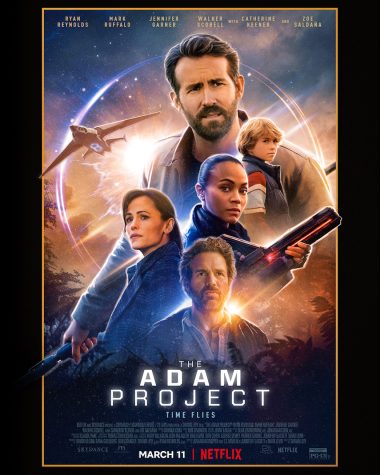“Tenet” Proves Strange but Spectacular
Mind-bending, action-packed, and shocking, “Tenet” offered viewers a chance to return to the theaters for another masterpiece from director Christopher Nolan. Terrific acting coupled with meticulous visual effects and an undeniably perfect soundtrack make the film an enjoyable experience. Despite its confusing elements, the balance of emotion and action had me back at the theater to watch “Tenet” again, wondering if it would make any more sense than the first time.
Before seeing “Tenet”, it is essential to know the director and the peculiarity of his films. Nolan’s past hits include “Inception” and “Insomnia”, and two of my favorites, “The Prestige” and “Dunkirk”.
These films illustrate his talents as a director and truly make viewers think, but I believe “Tenet” steals the competition in its own unique way. It took the signature Nolan style—make everyone question everything and think about the film non-stop—and multiplied its impact by a thousand. Essentially, “Tenet” is the most Nolan that Nolan has ever been.
And the plot is just the same: exactly what one would expect from a Nolan movie, amplified. “Mission: Impossible” meets time travel, but with a twist.
An American known only as “The Protagonist” is sent on a top-secret mission alongside Neil, a witty and experienced British agent. Together they face the terrifying Andrei Sator, one man with the power to determine the end of the world. In an emotional subplot, Neil and the Protagonist work alongside Sator’s wife Kat not only to halt his sinister plan, but also to reclaim her young son.
The twist on your average action movie comes into play when it is revealed that Sator is using technology from the future to carry out his sinister plan. Discovered in the present, this technology was developed years later and can “invert” objects, meaning their entropy is reversed. “Inverted” objects—and people—travel backward in time while normal objects travel forward. Throughout the film, characters become “inverted” numerous times and often revisit the same scenes from a different perspective. Cars flip over, soldiers fight, and people speak all in reverse while inverted. This particular element is quite confusing, but it only adds to the desire to see what happens next.
The all-star cast is a crucial element in conveying Nolan’s odd concept to viewers. The suave John David Washington plays the strong, well-dressed Protagonist, and he has certainly inherited his father Denzel’s acting genes. Having grown out of his “Twilight” phase, Robert Pattinson stars as Neil, a captivating and intelligent British agent. Kenneth Branagh showcases his versatility as the terrifying Sator, and the lovely Elizabeth Debicki conveys Kat’s resilience and charm.
Other notable stars in minor roles include Michael Caine, Dimple Kapadia, Himesh Patel, and Clémence Poésy.
One can’t talk about “Tenet” without giving its, dare I say, perfect soundtrack some attention. Composer Ludwig Goransson crafted brilliant instrumental tracks that match the film and its emotions so unbelievably well.
Right off the bat, “Rainy Night in Tallinn” echoes the feel of the first scene, as the tempo switches from calm to chaos just 45 seconds into the film. “Trucks in Place” and “Sator” also masterfully reflect what happens in their respective scenes. My favorite track’s name may spoil a jaw-dropping moment, but I will mention that something very large crashes into a building. Oh, and the filmmakers did it for real, you know, for authenticity.
I have only one complaint about the music, or the entire movie for that matter: the volume. It’s loud. Like, really loud. Watching “Tenet” in IMAX the first time, I could feel the vibrations in my feet. Coupled with the fact that characters wore gas masks while inverted (because you can’t breathe in reverse, of course), this made it hard to hear dialogue at times, so I often missed some crucial information. I made sense of what characters had planned and discussed, but I would have liked to understand it before it actually happened.
At the end of my second time through, after the final battle ended, I scrambled to comprehend how the last two hours culminated in this scene. Then, I realized the importance of the scene itself and the meaningful relationship between the Protagonist and Neil. Seeing the movie a second time truly opened my eyes to the emotional aspects that I had overlooked initially in my efforts to understand the scientific side.
One of the lines in the official trailer sums up my recommendation for first-time viewers: “Don’t try to understand it. Feel it.” I learned to focus less on my pressing questions—Who’s inverted and who’s not? What did they say backwards? Didn’t this already happen?—and more on the excitement unfolding before my eyes.
The ending is bittersweet and emotional on many levels, a surprising ending to an action-filled, shocking ordeal. I certainly recommend the film to movie buffs in search of something unusually and cleverly pieced together. As the credits roll, “Tenet” will surely leave you saying, “⸮deneppah tsuj tahW”

Emily Malone is a part of the Multimedia Journalism class at Padua and is editor and chief of Padua 360. She is a Senior at Padua who graduated middle...










